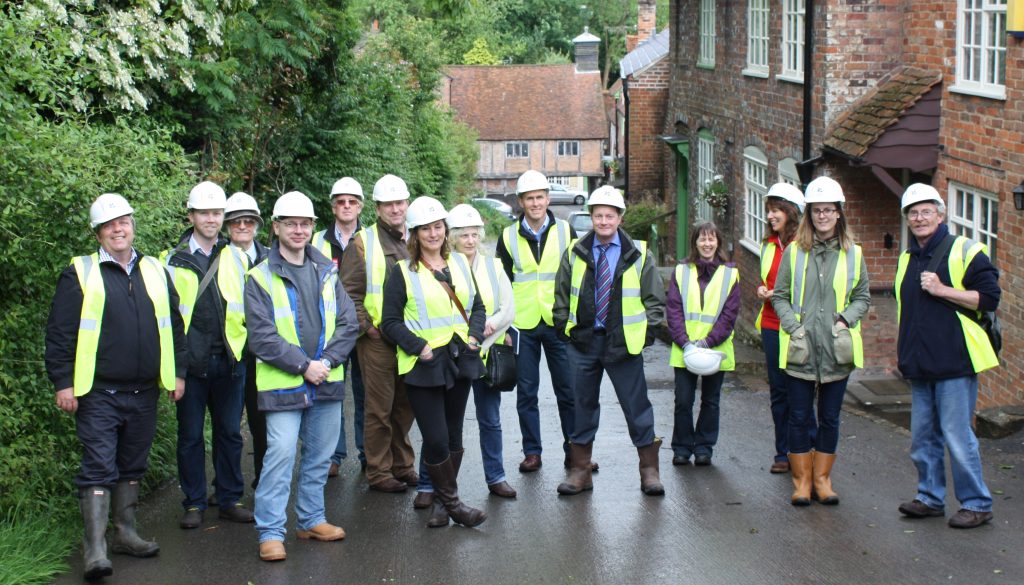
The Home Front in the Climate Emergency
This week Parliament has declared a Climate Emergency, the Committee on Climate Change has reassessed the UK’s carbon targets down to net zero, and Greenpeace has recommended that all UK buildings are zero carbon.
[Update 12/6/19: the Government announces it will amend the UK’s climate targets to Net Zero]
Ed Miliband has said the UK needs to be on a war footing – and the CCC’s data shows the role of the Home Front will be crucial.
We therefore welcome in the Committee’s work on what is needed to cut carbon pollution from our homes, not least its recognition of:
- The challenge of switching homes to low-carbon heating should be a focus of the HMT funding review
- People need access to the information and resources required to make change.
- The transition must be fair.
Greenpeace’s roadmap its equally welcome, and to both we can offer some lessons learned from our work we have carried out on over 3 million homes, across the public, private, rental and owner-occupier sectors:
- Sell the sofa not the finance: The positives of the Green Deal were in the end swamped by the development of a not particularly attractive financial service to which all other support was tied. The reason people pay attention to finance offers in the home furnishings sector is not just due to the 0% rates, it is because they like the idea of a new sofa in the first place. Our research amongst home-owners shows there is appetite for good-value retrofit finance to overcome upfront costs, but the rest of the offer has to appeal first.
- Carrots and sticks: For those handling a portfolio of properties, finance offers are balanced against not only the costs of retrofit but also the ROI from other investments. Legal targets cut through and get retrofit to the top of the agenda: the Clean Growth Strategy targets are already driving investment amongst our public and private sector clients and action will accelerate once the standards, and their enforcement, are clarified.
- We cannot manage what we cannot measure: building owners across the UK, whether individual or landlords, do not have a right to the detailed data captured in the EPC surveys that they pay for; and local authorities do not have a right to data on tenure, landlords or EPC detail yet are expected to enforce energy efficiency standards in the sector. Software like ours can help double the carbon saved per pound spent by testing investment scenarios but net zero cannot be achieved when the key agents are operating in the dark.
- Energy efficiency is a core element of low carbon heating: energy efficiency and demand reduction reduces the installation, running cost and system costs of low carbon heating. Support for the latter must also be open to the former so that technologies, systems and trades can compete on a level playing field.
- High standards can cut costs: we need zero carbon regulations introduced for new build now. The sooner the skills and materials are required at scale in the new build sector, the sooner costs fall across the entire housing sector; and the normalisation of low carbon homes can, at last, begin.
- Innovation funds should support not lead Government policy: Let’s recognise the most effective policies in the past decade have been products policy and the feed-in tariff. These gave the relevant markets a clear framework in which to innovate. We are getting there with the development of Trustmark and PAS 2035 to assure quality; it is the financial and/or legal imperatives that are missing.
- Incorporate measured and carbon performance: one barrier to innovation are where SAP, RdSAP and therefore EPCs do not recognise the value of new technologies or approaches; for example inter seasonal storage or where the environmental performance of a home in carbon terms is not reflected in the energy performance. Decisions are required on how a Net Zero target relates to EPCs; after a decade of dismissal, it appears that the time of the Environmental Indicator may have arrived?!
- Retrofit should not be an add-on in building regulations: The opportunities to influence energy efficiency in owner-occupied homes is rare but the potential levers are known. Building regulations should promote and require net zero design at every stage, as should legal responsibilities and financial charges at the point of sale and rent. Move the regulations to a whole-house performance figures that can be readily monitored and aligned with EPCs.
- An emergency requires urgency: early movers across all sectors should be rewarded. These are one-off decisions, potentially with significant hassle, but also with significant long-term benefits: a tonne of carbon saved this year by energy efficiency, is worth ten saved in a decade’s time.
- And finally, we are in a Climate Emergency. The climate is changing. Our homes will have additional pressures – keeping cool in higher temperatures and managing significant changes in rainfall – whether that’s too much or too little. We welcome the Committee on Climate Change’s recommendation that homes fit for the future must be resilient, and the sooner the risk of overheating and water efficiency is fully incorporated into the EPC dataset and our renovation of the UK’s homes, the better.